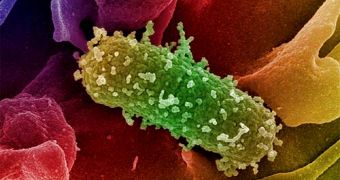Using bacteria of some sort to create newer and better computers is not exactly a new idea, but it seems that researchers from University of California San Francisco have actually succeeded in forcing a certain bacteria to act as a logic gate.
The main principle behind creating computers based on microscopic lifeforms is that a number of bacteria, or whatever else is used, have to act as a sort of hive mind.
Researchers form UCSF claim to have succeeded in modifying the E. Coli bacteria in such a way as to let it behave like a logic gate.
What Professor Voigt and his team did was modify one such bacteria to secrete two compounds, one that represents the “on” state and another one for the “off” state.
This means that the bacteria can be forced to become part of a hive mind computer, as it can even be an “and” or an “XOR” (exclusive or) gate if it has the necessary genes.
“AND” gates secrete the “on” substance, while “XOR” gates produce the “off” compound.
"We think of electronic currents as doing computation, but any substrate can act like a computer, including gears, pipes of water, and cells,” professor Voigt states.
“Here, we've taken a colony of bacteria that are receiving two chemical signals from their neighbors, and have created the same logic gates that form the basis of silicon computing."
The bacteria should be able to make up for not being as small as 32nm process gates through their reprogrammability, self-healing ability and possibly greater ease to stack in 3D circuits.
All they would need would be a matrix with their necessary nutrients before they can work as a single, biochemical computer.
"The purpose of programming cells is not to have them overtake electronic computers," Voigt says.
The researchers are now trying to make a computer that understands commands in formal language instead of assembly language.

 14 DAY TRIAL //
14 DAY TRIAL //